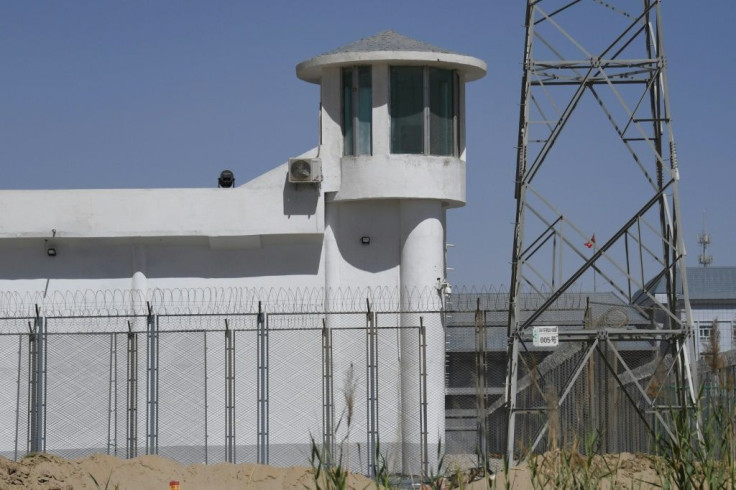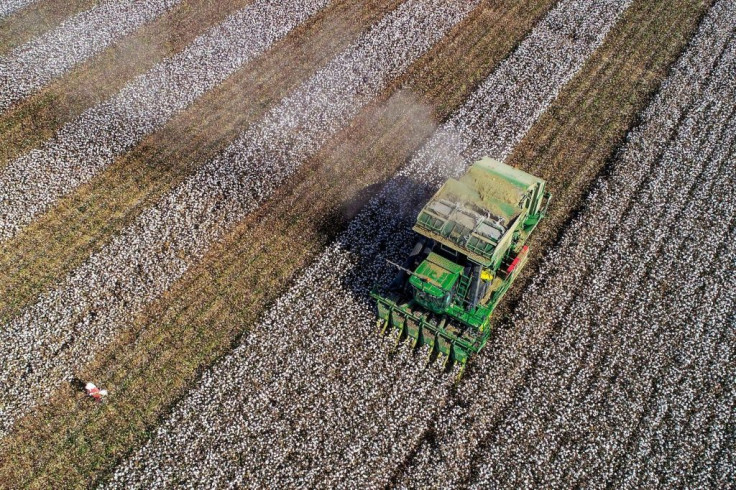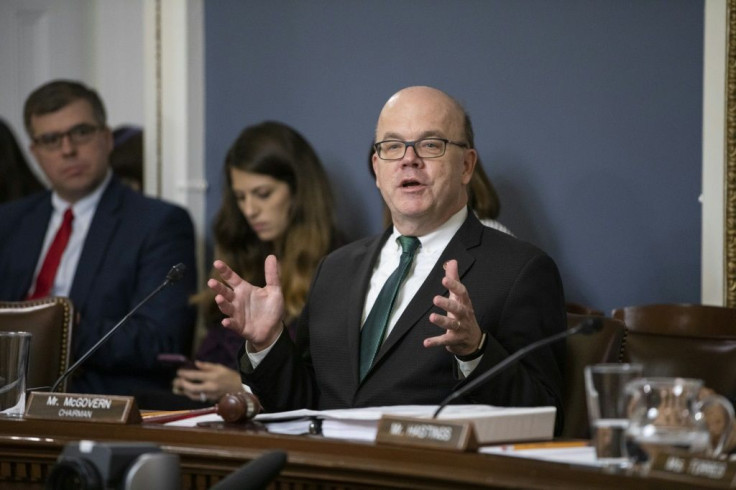US Lawmakers Seek Xinjiang Import Ban Over Forced Labor

US lawmakers on Wednesday proposed a ban on most imports from China's Xinjiang region, charging that goods produced by Uighur forced laborers were easily making their way into the United States.
The United States already bans products made through slavery. but with China holding more than one million Uighurs and other Muslims in camps in Xinjiang, lawmakers said that forced labor was interwoven into the region's economy.
"These practices in Xinjiang are one of the world's largest human tragedies. It remains unimaginable, frankly, that this is happening in 2020," Senator Marco Rubio, a Republican sponsor of the bipartisan measure, told reporters.
Representative Jim McGovern, a Democrat who leads the Congressional-Executive Commission on China, which looks at human rights, said that witnesses, surveillance photos and leaked documents all showed the existence of forced labor.
"We know that many US, international and Chinese companies are complicit in the exploitation of forced labor involving Uighurs and other Muslim minorities," McGovern said.
"Audits of supply chains are simply not possible because forced labor is so pervasive within the regional economy," he said.

The act would ban import of any goods from Xinjiang unless US Customs and Border Protection has "clear and convincing evidence" that no forced labor was involved.
Uighur activists say that China is conducting a massive brainwashing campaign in internment camps aimed at eradicating their separate culture and practice of Islam.
China describes the camps as vocational training sites and says it is trying to reduce the allure of Islamic extremism.

In an accompanying report, the commission said it had seen "credible reports" that goods involving forced labor have come into the United States, including textiles, cell phones, computer hardware, shoes and tea.

It listed a number of companies that allegedly benefited from forced labor, including fashion brands Calvin Klein and H&M, beverage giant Coca-Cola and Campbell Soup.
The Fair Labor Association, a collaborative that aims at protecting workers' rights, said this week it was "deeply troubled" by reports of forced labor in Xinjiang and asked its affiliates to look at alternative sourcing options.
The association covers companies that were also listed as touched by forced labor from Xinjiang, including shoemakers Adidas and Nike.
One major source of concern has been cotton, as Xinjiang -- like the American South two centuries ago -- supplies the world.
Scott Nova, the executive director of the Worker Rights Consortium, which monitors factories, said that China has made a concerted effort to make Xinjiang a global hub for cotton and yarn.
Of the 10 billion garments imported each year into the United States, around 20 percent are believed to contain at least some material from Xinjiang, Nova said at a panel of the Congressional-Executive Commission on China.
Xinjiang cotton "feeds not just garment factories in China but factories around the world -- from Bangladesh to Vietnam to Central America," Nova said.
"For apparel brands and retailers, the risk of complicity in forced labor is enormous," he said.
The Uighur Forced Labor Prevention Act, if approved by Congress, would also require the secretary of state to produce a report on whether coerced labor is taking place and outline steps to combat it.
Secretary of State Mike Pompeo criticized China's treatment of minorities Wednesday as he released the State Department's annual report on human rights.
"As I've said before, the CCP's record in Xinjiang is the stain of the century," Pompeo said, referring to the Chinese Communist Party.
The State Department report took note of reports by the media and non-government organizations of forced labor in Xinjiang.
© Copyright AFP 2024. All rights reserved.





















